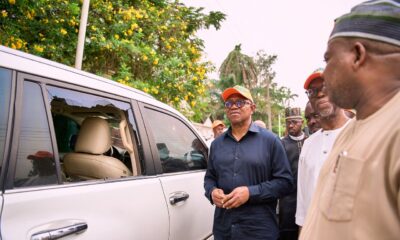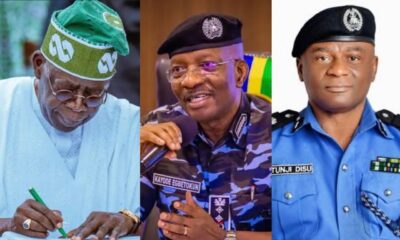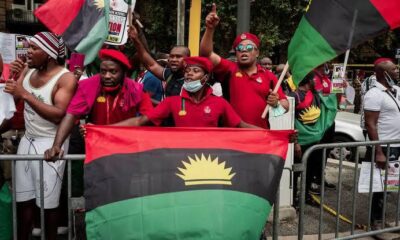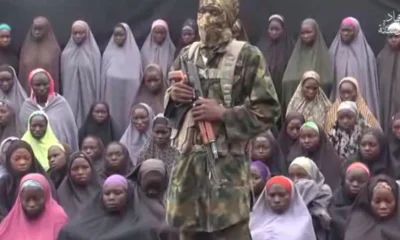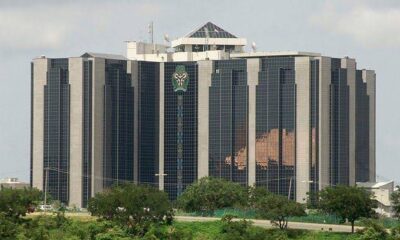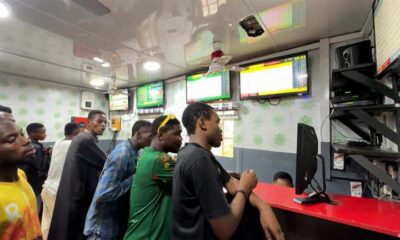Entertainment
‘This Film Is Nigeria’: Netflix’s ‘The Herd’ Meets a Nation Already Living the Story
As Nigeria battles recurring kidnappings and community attacks, The Herd has shifted from a fictional thriller to a stark reflection of the nation’s daily fears…

- As Nigeria battles recurring kidnappings and community attacks, The Herd has shifted from a fictional thriller to a stark reflection of the nation’s daily fears, echoing events that dominate today’s headlines.
At a moment when Nigeria is once again confronted with rising cases of abductions—from attacks on worshippers in Kwara to the kidnapping of schoolchildren in Kebbi and Niger—The Herd feels less like entertainment and more like a mirror held up to the country.
Daniel Etim-Effiong’s crime thriller, released in cinemas on October 17 and now streaming on Netflix, blurs the line between fiction and reality. Its portrayal of kidnappings, forest hideouts, fear, and unpredictable violence closely mirrors the troubling events Nigerians see daily.
Featuring an ensemble cast including Daniel Etim Effiong, Deyemi Okanlawon, Genoveva Umeh, Kunle Remi, Mercy Aigbe, Tina Mba, Lateef Adedimeji, and Nobert Young, the film grounds itself in familiar faces and delivers performances that feel unsettlingly authentic.

Plot
The film opens with a joyful Nigerian wedding, full of colour and celebration. Newlyweds Derin and Fola, joined by their friend Gosi (Daniel Etim-Effiong), slip away from the festivities for a quiet road trip—only for their journey to be violently disrupted.
A sudden ambush throws them and other travellers into the hands of a kidnapping gang operating from the forest. Gosi narrowly escapes at first but is soon captured. The gang’s ruthless leader, Yakubu (Ibrahim Abubakar), exercises psychological control over the hostages as their families scramble to raise a N50 million ransom.
Back home, Gosi’s wife battles illness, pressure from relatives, and the overwhelming task of sourcing ransom funds. Meanwhile, police detectives in Ekiti attempt to track the group with limited leads and mounting urgency.
DON’T MISS: Muslims Launch Campaign to Ban Netflix Over ‘The Herd’ Movie (Video)
Review
The Herd succeeds in exposing the emotional and psychological impact of banditry on ordinary Nigerians. Its strongest asset is its grip on tension—beginning with joy and immediately plunging the audience into fear.
Ibrahim Abubakar’s portrayal of Yakubu is a standout, capturing the unsettling mix of rage and trauma that defines his character. Several lesser-known Hausa actors deliver some of the film’s most convincing performances, adding depth and realism that make scenes feel almost documentary-like.
The film also explores dynamics within the kidnappers’ camp, highlighting the internal conflicts between Yakubu and the more calculating Halil (Abba Ali Zaky) and his wife, Habiba (Amal Umar). A brief moment of hope surfaces when police follow a lead from Fola’s Apple Watch, only for the trail to collapse after a local pastor unknowingly misleads investigators.

Visually and technically, the film puts in great effort—sound, props, music, and set design work together to create an atmosphere that feels true to the terrain and social realities of southwestern Nigeria.
Another strength is the use of multiple Nigerian languages—Hausa, Yoruba, Igbo, and English—reflecting Nigeria’s cultural diversity without promoting stereotypes.
Still, the film isn’t flawless. Some plot twists follow familiar thriller patterns, and a few action sequences lean into dramatic choreography that slightly breaks the film’s realism. A couple of characters exit the story abruptly, leaving emotional gaps that could have been better explored.
Conclusion
The Herd is more than a movie; it is a reflection of a nation grappling with insecurity that has become disturbingly normal. It leaves viewers with the lingering question many Nigerians carry: What if this happens to someone I know?
With gripping performances, cultural depth, and sharp storytelling, The Herd delivers a tense, emotionally charged experience that speaks directly to Nigeria’s present challenges.




